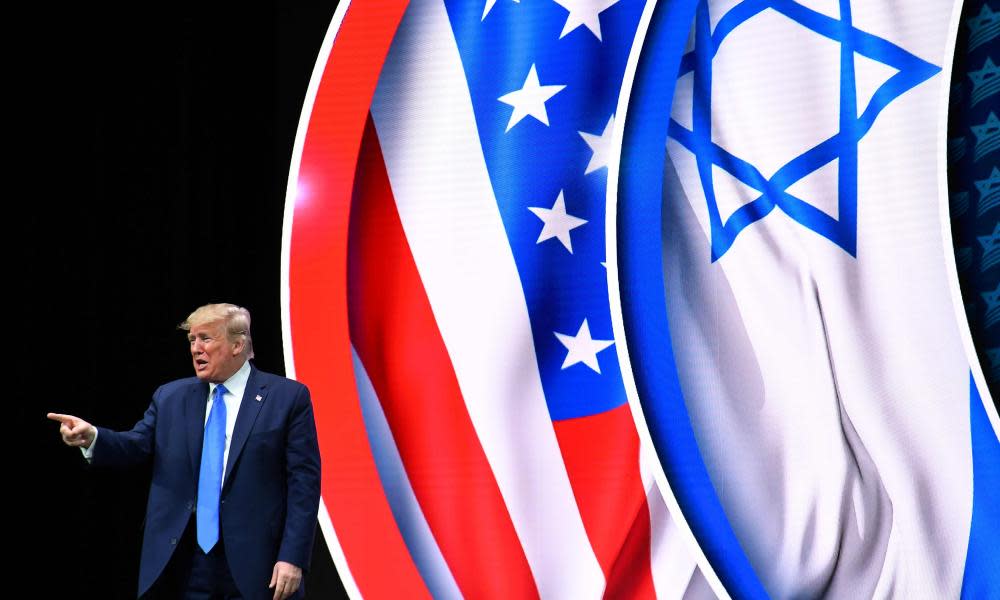Trump signs antisemitism order amid concerns it targets critics of Israel

Donald Trump has signed an executive order that empowers the US education department to penalise college campuses by withholding federal funds from those that are deemed to be tolerating antisemitism by allowing debate critical of Israel.
Trump’s order, announced on Wednesday evening from the White House, was pitched as a move to push back on rising antisemitism on American campuses. In an opinion piece in the New York Times, Jared Kushner, Trump’s son-in-law and senior adviser, who is an orthodox Jew, said the action would “support and defend Jewish students in the United States”.
But Palestinian and progressive groups decried the executive order as a blatant effort to squash criticism of human rights abuses committed by the state of Israel. Dima Khalidi, director of Palestine Legal, denounced the order as a “baldfaced attempt to silence the movement for Palestinian rights on college campuses”.
She added: “Defining antisemitism to include criticism of Israel serves only to violate the free speech of students and professors who stand for equality and justice for all people.”
Rightwing Republicans have long agitated to quell the rise of the pro-Palestinian boycott movement, known as boycott, divestment and sanctions (BDS) on US campuses. The Guardian revealed in October how conservative activists were working to spread new laws across Republican-controlled states that would ban criticism of Israel in the name of combatting antisemitism.
At the federal level, similar pushes have failed to find their way through Congress. Trump’s executive order in effect bypasses congressional qualms and introduces the measure unilaterally.
Related: Trump's plan to sign antisemitism order raises fears it could stifle Israel criticism
The bitter controversy stems from a specific definition of antisemitism that has been adopted by several international and US bodies, which critics argue is so broadly worded that it infringes on free speech rights. The definition was framed by the International Holocaust Remembrance Alliance (IHRA).
Many of its elements are entirely non-controversial. For instance, the definition includes “calling for, aiding, or justifying the killing or harming of Jews in the name of a radical ideology or an extremist view of religion”.
It also encapsulates dehumanizing and demonizing stereotypes of Jews such as the myth of a Jewish world conspiracy.
The controversy arises where the IHRA definition touches upon the state of Israel. It classifies as antisemitism:
“Denying the Jewish people their right to self-determination, eg, by claiming that the existence of a State of Israel is a racist endeavor”
“Applying double standards by requiring of it a behavior not expected or demanded of any other democratic nation”
Opponents of the Israeli occupation of Palestinian territory and critics of Israel’s human rights record argue that such language is designed to restrict legitimate debate about the actions of the Israeli government.
The new executive order is certain to further inflame passions across the US about the Israel-Palestinian conflict. Within the American Jewish community, opinions were sharply divided.
The Anti-Defamation League, a Jewish group devoted to combating antisemitism in all its forms, welcomed Trump’s action. The ADL said it was an “important step acknowledging the growing concern about rising antisemitism on American college campuses”.
By contrast, Rabbi Alissa Wise of Jewish Voice for Peace said the executive order was the culmination of “decades of attempts by anti-Palestinian organizations to suppress Palestinian organizing, advocacy, research and teaching on college campuses. It will usher in a climate of fear where university administrations will be incentivized to silence student activism”.
This article was amended on 12 December 2019 to fix a typo.

